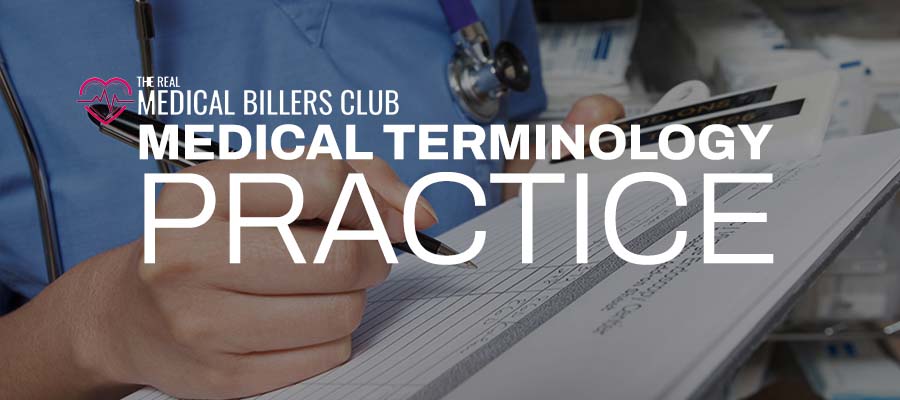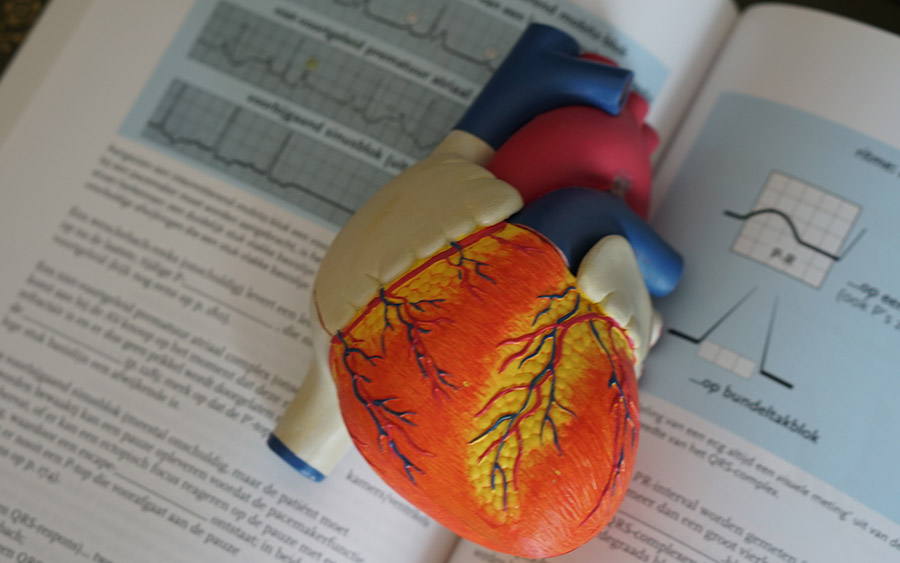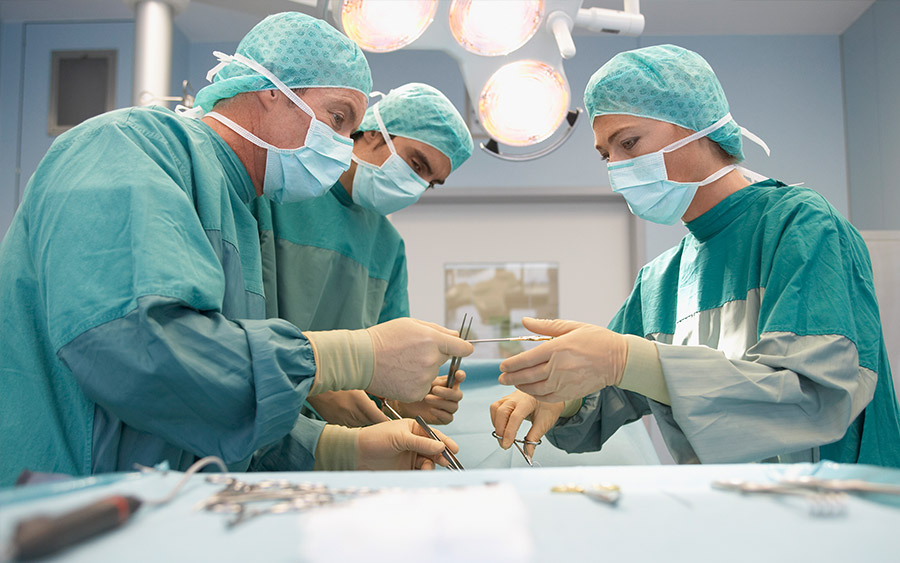
By: Patricia Lincoln, Medical Billing and Coding Instructor
Medical terminology allows doctors, nurses, billers, and other medical professionals to speak the same language. It is incredibly important to be able to understand what a procedure or condition is in order to do your job as a medical professional.
Practice Makes Perfect
Once you have learned medical terminology, you must practice what you have learned so you don’t forget everything! I have three tricks that will help you practice!
One of the best ways to stay sharp on your terminology is your flash cards from the back of your terminology textbook. Take them with you everywhere you go. When you are waiting for someone or just have a little down-time, instead of checking your Facebook, pull out those flash cards!
Watch your favorite medical TV shows! As the doctors and nurses on tv talk, figure out what their words mean.
Work through exercises in your terminology textbook. If you made a point of putting the correct answers in your book during the MED110 course, you can check your own work and see how you did!
Anatomy of Medical Terminology

Medical terminology words are made up of three major parts:
Suffix
Whenever you’re defining a word or building a word, always start at the end. It’s called the suffix. It tells you what was done (such as surgical removal, -ectomy) or what is wrong (such as inflammation, -itis). Some suffixes are noun endings (such as -um), and simply change the word root into a noun. Some suffixes just mean “abnormal condition” (such as -osis or -ia), or “pertaining to” (such as -ic or -al).
After defining the suffix, we move to the very beginning of the word, then keep moving to the right, defining word parts as we go.
Prefix
A prefix comes before the word root and in medical terminology it might tell timing (before = pre- after = post-), status (or how it’s working) (bad = dys-, fast = tachy-), quantity (both = bi-), or location (away from = ab-), and sometimes it’s about size (large = mega-). Be careful, not all medical terms will include a prefix!
Word Root
The word root is the basic meaning of the word. In medical terminology the word root is usually the involved part of the body. Some word roots indicate color. A medical term can have more than one word root. For example a term can involve more than one part of the body or more than one color.
When combining a word root with a suffix you’ll want to use the combining form of the word root. A combining form is simply a word root with a vowel added to the end. This makes it easier to combine with a suffix or another word root.
There are 3 simple rules to know when to use the combining form of a word root:
- If you are combining a word root with a suffix that begins with a vowel, you do NOT need to add the combining form vowel to the wood root.
- If you are combining a word root with a suffix that begins with a consonant, you DO need to add the combining form vowel to the word root
- If you are combining two-or-more word roots with each other, you always add a combining form vowel in between the word roots
Common Suffixes related to procedures

It can be helpful to memorize some common procedures that include that suffix. For example, Tonsillectomy means to take out the tonsils so it can help you remember that -ectomy means surgical removal.
Suffixes related to “what was done”
| Suffix | Meaning |
|---|---|
| -ectomy | Surgical removal |
| -otomy | Cut into |
| -centesis | Puncture to remove fluid |
| -plasty | Surgical repair |
| -scopy | Visual examination |
| -graphy | Process of producing a picture or record |
| -rrhaphy | Surgical suturing |
Suffixes related to pathology (disease) “what was wrong”
| Suffix | Meaning |
|---|---|
| -emia | Blood, blood condition |
| -itis | Inflammation (infection) |
| -algia | Pain |
| -megaly | Enlargement |
| -rrhea | Flow |
| -stenosis | Abnormal narrowing |
| -lithiasis | Presence of stones |
| -phasia | Speak or Speech |
| -phagia | Swallowing |
| -ia | Abnormal condition |
Common Prefixes
| Prefix | Meaning |
|---|---|
| Poly- | Many |
| Tachy- | Fast |
| Brady- | Slow |
| Dys- | Bad, difficult, painful |
| Hyper- | Excessive or increased |
| Hypo- | Decreased or low |
| Pre- | Before |
| Post- | After |
Common Word Roots – Combining Forms
| Word Root | Meaning |
|---|---|
| gastr/o | Stomach |
| card/o, cardi/o | Heart |
| cephal/o | Head |
| oste/o | Bone |
| myel/o | Spinal cord or bone marrow |
| my/o | Muscle |
| crani/o | Skull |
| cost/o | Rib |
| chondr/o | Cartilage |
| burs/o | Bursa, sac of fluid near joint |
| kinesi/o | Movement |
| tend/o, tendin/o, ten/o | Tendon |
| arteri | Artery |
| angi/o | Vessel (Lymph or blood) |
| vas/o | Blood Vessel |
| chol/e | Bile or gall |
| cyst/o | Bladder |
| enter/o | Intestine |
| espohag/o | Esophagus |
| hepat/o | Liver |
| hyster/o | Uterus |
| men/o | Menstruation |
| nephr/o | Kidney |
Medical Terminology Word Building

Practice building words. Can you combine the prefix, suffix, and word root for the following questions? Remember to start from the end when building words.
1. What is the name of the procedure where someone has their appendix removed?
The suffix for “surgical removal” is -ectomy and the word root for appendix is append. Because the suffix begins with a vowel we don’t use the combining form. Thus the answer is: Appendectomy
2. What is the name of the procedure where someone has their gallbladder removed?
The suffix for surgical removal is -ectomy. The word root combining form for gall is chol/e and the word root combining form for bladder is cyst/o. Because -ectomy begins with a vowel we don’t need the combining form vowel on cyst. We always use the combining form to connect word roots however, so the answer is Chole + cyst + ectomy: Cholecystectomy.
3. What is the term that means “the abnormal condition of a fast heart?”
Checking the chart above, the suffix -ia means “abnormal condition”. The prefix Tachy- means fast and the word root cardi means heart. Since -ia starts with a vowel, we don’t need the combining form on cardi. The answer is: Tachycardia
4. What is the term that means gallstones?
The suffix for stones is -lithiasis and the word root combining form for gall is chol/e. Because -lithiasis does not start with a vowel we need to use the combining form of chole which gives us Cholelithiasis
5. What is the term that means “bad, difficult, or painful menstrual flow?”
The suffix for flow is -rrhea. After deciding on the suffix it’s easier to go to the beginning of the word and choose a prefix if applicable. In this case we want to describe the flow as painful or difficult so we add the prefix Dys-. The word root for menstruation is men and because -rrhea does not start with a vowel we need to use the combining form men/o. This gives us Dysmenorrhea.
6. What is the term that means “enlargement of the liver”
The suffix for enlarged is -megaly and the word root for liver is hepat. Because -megaly does not start with a vowel we will use the combining form hepat/o to build Hepatomegaly.
The Real Medical Billers Club

Students and alumni can join us each month for our instructor led Medical Billers Club. Thee they can get an inside look at the medical billing world. From current event topics affecting the medical field to advice on dealing with difficult patients and everything in between! Bring your own concerns and questions regarding the medical billing field and get REAL answers!
Medical Billing and Coding Training at Laurus College
A career in Medical Billing and Coding may be just the right fit for you. In our career-focused program, students learn the skills to market themselves to future employers in the fast-paced fields of medical insurance billing, medical coding, and various medical front office responsibilities.
Learn more about the Medical Billing Program at Laurus College
